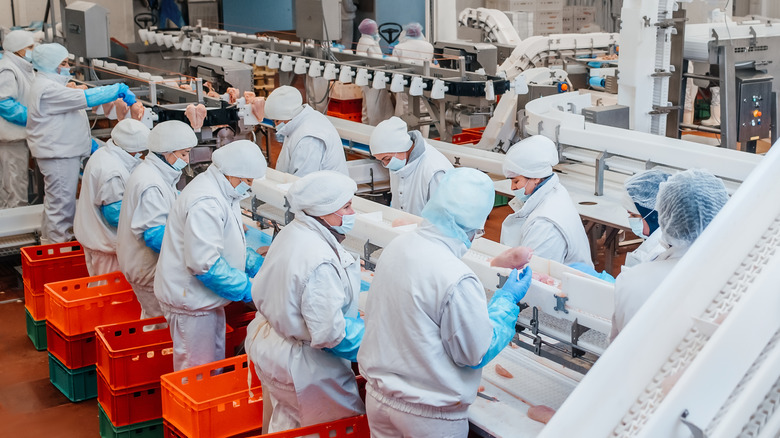Why Experts Predict The Processed Meat Industry Will Be Worth Nearly $1 Trillion
In the current inflation maelstrom in which we exist, stories of skyrocketing prices are ubiquitous. Among those commodities whose price seems to be climbing ever higher is meat. The stories dot the news landscape. Vox attempts to answer just why, Bloomberg reports that a brief dip in beef and pork prices probably won't last, and CNBC says that consumers, driven by inflation, are changing their eating habits.
Despite all this, earning projections for certain segments of the meat industry remain rosy. A new report by Meticulous Market Research finds that by 2029 the meat-based FPP (Further Processed Products) market could reach $991.58 billion representing a 6.8% CAGR (Compound Annual Growth Rate) between 2022 and 2029. The meat-based FPP market encompasses hot dogs, sausages, burgers, meat patties, bacon, wings, and strips made from pork, beef, veal, or chicken. These items can be marketed directly to consumers or be B2B (Business-to-Business) products.
A host of factors are contributing to this growth. As detailed in a press release announcing the findings, Americans are consuming an increasing amount of fast food, a sector which makes liberal use of meat-based FPP. The trend points towards protein-rich diets, a strong desire for animal-based foodstuffs, and the popularity of ready-to-eat and ready-to-cook products are drivers as well.
Covid and other constraints
This comes despite the setbacks the industry experienced due to the COVID-19 pandemic. Measures taken to mitigate the spread of the virus had clear negative effects on the food and beverage industry and served to draw down consumption and demand for FPP. Supply chain disruptions, blows to consumer purchasing power coupled only served to hamper market growth.
Internal to the industry, rampant COVID-19 spread among workers led to broad drawbacks and outright shutdowns at meat-packing facilities both domestically and overseas. Between April and May 2020, production of beef and pork in the U.S. fell 40% year-over-year. But with production returning to pre-pandemic levels and consumer demand rising steadily, the meat industry is positioned for this period of robust growth.
There are two major constraints, though. First is the growing plant-based meat alternatives market. Consumers are realizing the bevy of benefits provided by products from companies such as Impossible and Beyond, including the environmental pros (via the Good Food Institute.) Second is mounting evidence that consumption of FPP has a direct link to increased cancer rates, specifically bowel and stomach cancers, reports the Cancer Council.

